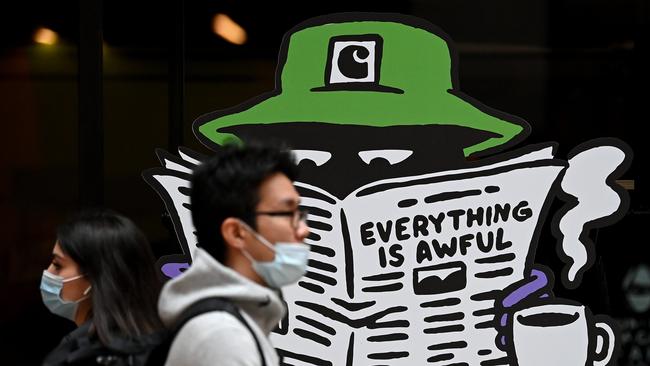Business confidence rocked by lockdowns
Covid lockdowns in Melbourne and Sydney dealt a blow to business confidence, even as NAB’s survey flagged pay rises later this year.

Melbourne’s lockdown and the introduction of restrictions in Sydney to contain a Covid-19 outbreak delivered a major blow to business confidence, even as seven in 10 employers said they planned to give their workers pay rises in the second half of this year.
Firms also told NAB’s latest monthly survey that operating conditions had deteriorated sharply, with Victoria the worst affected after the state’s capital endured two weeks of strict lockdown.
NAB’s business confidence index dropped nine points to 11 points, while conditions dropped 12 points to 24 points.
A reading above zero reflects more positive than negative responses.
Despite the declines, the sentiment and operating conditions gauges remained more than double the average level, NAB said, although that confidence would be further tested in coming months as the country struggled to contain the more virulent Delta strain of the virus.
The survey was conducted between June 18 and 30 as Melbourne eased restrictions. Responses incorporated the introduction of Sydney’s lockdown by the end of the survey period, but before the spread of the virus triggered a further extension.
As NSW Premier Gladys Berejiklian announced 89 cases of community transmission, Citi chief economist Josh Williamson said he expected Sydney restrictions of some degree to be in place until August. The recreation and personal services industry – which bears the brunt of social distancing measures – suffered a “very large” 27-point decline in confidence and was now back in negative territory, the NAB report showed, while all other industries remained positive.
NSW unsurprisingly suffered the sharpest deterioration in business confidence, falling 16 points to five points, but sentiment among Queensland firms also deteriorated by 15 points and there were declines across the country.
“The threat of closing borders also appears to have weighed everywhere,” NAB chief economist Alan Oster said.
A special question on wages growth showed only about half of employers had given pay rises over the previous six months – a “relatively low” proportion.
Seven in 10 firms said they expected to pay their workers more in the coming six months.
Based on history, the survey suggested the wage price index – running at 1.5 per cent annually – will jump by 1 per cent in each of the September and December quarters – an annualised pace of 4 per cent.
Mr Oster said more detailed modelling “suggests that rate of increase will likely be temporary and it won’t be till late 2023 till more sustained increases in the wages momentum are experienced”.
West Australian and Tasmanian businesses were most likely to pay wage increases. By industry, the construction, manufacturing and finance and real estate services sectors reported the highest proportion of businesses flagging they would lift pay, at 70-80 per cent of respondents.
Despite the deteriorating corporate mood as authorities reinstated restrictions and closed borders, Mr Oster said “the experience of lockdowns to date is that there is a fairly rapid rebound in activity as restrictions are removed. With most survey indicators at high levels, the hope is there is no material easing in hiring and investment intentions.”




To join the conversation, please log in. Don't have an account? Register
Join the conversation, you are commenting as Logout